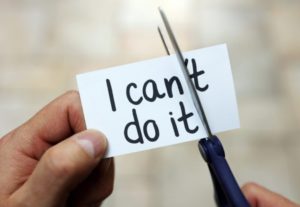 That Four-Letter Word: EXAM!
That Four-Letter Word: EXAM!
by Kalpna Solanki, BSc MBA CPHI(C)
Recently, the EOCP has been getting feedback from Operators who took an ‘exam prep course’ and then subsequently failed their exam.
Whilst the exam preparation courses are important, there’s a lot more that goes into preparing for an exam. To find out how Operators are preparing for exams, I reached out to Operators who had recently written exams and passed, and asked them about their ‘secret to success’. As expected, their ‘secret’ was hard work, but here is what they actually said:
“Having graduated from the TRU wastewater program, I not only had the TRU textbooks, but the Sacramento State level one books to study from. I did devote a great deal of time to my studies and did have over five years of work experience to draw from.”
“The exams were very easy if you have been continuously studying water and wastewater engineering material, biology and chemistry material related to the industry, and working in the industry. I have two years of direct experience and have toured more than 15 different facilities and worked in five different plants and communities. Study, learn, and get every certification offered to you, any chance you get. The more experience with various systems the better the Operator you will become.”
“The Water Sifu podcast by Ty Witman was also helpful with understanding some theory and ideas. I did use the ‘Need to Know’ criteria and the ABC website to help study. I have a huge advantage as I work in 11 different water systems and that work experience really pays off. There was ample time to complete the exam – I took my time, I wrote the test, reviewed the test, and left after 2.5 hours. The main tip that I would offer is to know the material. It took me approximately 100 or more hours to do my courses and to complete the practice tests and review the materials. Flash cards are also a helpful study aid.”
“I used the AWWA Grade 2 book, particularly the study questions. I also used the study questions in the Sacramento State WT Vol 2 book. I also used the WT exam prep from RoyCEU for practice questions. I also read over the information at the ABC website – the practice exam was good, but very short. I ran the math calculations in both metric and US measurements as a double check for my answers. I completed LOTS of practice questions.”
“The preparation for all these exams was referring back to my Sacramento State University Water and Wastewater courses. I also looked back on the materials that I got from the Water Engineering Technology Program. I did refer to the ‘Need to Know’ criteria quite a bit to focus in on what I needed to study. What I personally do during these exams is go through and mark down any questions that I don’t necessarily know right away, and move to the next question. Once I go through the test fully, I go back through and check my answers that I was confident with, and answer the marked down questions. Honestly, the single most helpful resource for these exams is the Sacramento State University Water and Wastewater courses. The knowledge I obtained from the Water Engineering Technology Program was critical as well.”
So, how are Operators in BC/YK doing on the exams? They are doing better than those in most other jurisdictions that we have surveyed. Looking at the results for 2018, the pass rates for the various exams are:
| Exam Category | Exam Source | Percent of Examinees that Passed |
| BWD | EOCP | 63 |
| SWS | EOCP | 92 |
| SWWS | EOCP | 68 |
| WT | ABC | 91 |
| WD | ABC | 78 |
| WWC | ABC | 86 |
| WWT | ABC | 64 |
The EOCP monitors the exam pass/fail rates on an annual basis and investigates where there are anomalies. In addition, exams are reviewed on a regular basis to ensure questions are valid and the wording of the exams is not misleading.
Of the exams listed above, the EOCP’s own exams will undergo a review in 2020. For the ABC exams, there will be an ‘exam refresh’ later this year (the Need to Know criteria will remain the same).
A number of resources have been mentioned by the Operators I spoke with and those are listed below, in addition to some other resources that I have found:
- ABC: http://www.abccert.org/testing_services/2017StandardizedExams.asp
- RoyCEU: https://royceu.com/Public/Default.aspx
- Water Sifu: https://www.thewatersifu.com/
- AWWA WSO Books: https://www.awwa.org/Store/WSO-Water-Distribution-Grades-1–2/ProductDetail/55158821
- California State Math Help: http://www.owp.csus.edu/courses/math-courses.php
- AWWA Exam Prep Book https://www.awwa.org/Store/Water-Operator-Certification-Exam-Prep/ProductDetail/66247620
- AWWA Practice Tests and Exam Prep App: https://awwaexamprep.com/
- EOCP Resources: http://eocp.ca/certified-operators/preparing-for-your-exam/
In addition to the resources above, some other tips on preparation:
- Organize your study space – make sure you have space to spread out your books and notes, have enough light, a comfortable chair, and distractions are minimized;
- Use flow charts and diagrams as visual aids as they are helpful when revising;
- Make sure you have enough time to prepare for the exam – ‘cramming’ the night before will not work well;
- Practice on old exams to get used to the format of the questions and make sure allocate your time appropriately;
- Explain your answers to others as this helps you get the concept clear in your head and recognize any areas that need more work;
- Organize study groups with friends – arrange a study session with friends/colleagues as questions can be better answered;
- Take regular breaks as this helps with long-term knowledge retention;
- Snack on ‘brain food’ such as fish, nuts, seeds, yoghurt, and blueberries;
- Plan your exam day – make sure you have enough time to get to the exam session, bring your ID, take a basic calculator (not a cell phone), and a pen/pencil for working out equations
- Ensure you are hydrated prior to the exam – your brain needs water to work! Please note though that you cannot bring any liquids, including water, into the exam sessions.
As a reminder, and to emphasize the above, every exam confirmation email now includes the following checklist:
Prior to the Exam:
- I have reviewed the resources to prepare for the 2017 Standardized Exam at http://www.abccert.org/testing_services/2017StandardizedExams.asp
- I have learned to navigate a web-based exam and reviewed sample questions at http://www.abccert.org/testing_services/2017StandardizedExams.asp
On the Day of the Exam:
- I have a piece of government issued photo ID with me (this is mandatory)
- I have a basic calculator (not a cell phone)
- I have a pen/pencil for working out equations
During the Exam:
- Food and/or drinks are not permitted
- Hats may not be worn
- Electronics (cell phones, smart watches, tablets, etc.) are not permitted
I, too, will have to complete a written exam in two weeks, followed by a practical exam a week later. Since it has been several years since I’ve had to write an exam, so the prospect is a bit intimidating! I have taken a course, and I have a reference book, but I know that I will also need to use tools to reinforce what I have learned – tools such as reviewing the reference book, highlighting relevant sections, reviewing class notes and highlighted sections of the reference book, using flash cards, reviewing online resources, and trying out old exams. The course was great, but I know I will have to put in a lot of extra work to do well in the exam.
Good Luck – to me and you!

